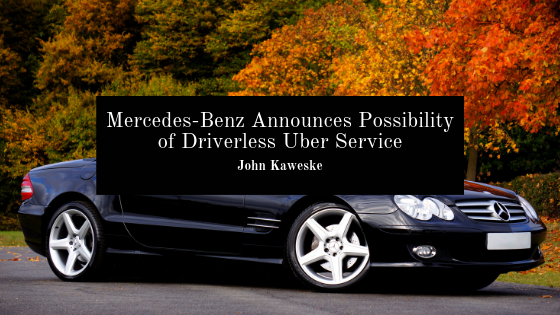Mercedes-Benz is considering expanding its audience beyond drivers who are looking to buy cars– in fact, their newest venture may not include drivers at all.
Dieter Zetsche, owner of Mercedes-Benz’ parent company Daimler, told Reuters about possible plans for an on-demand limo service similar to Uber, except for one huge differentiator: the cars would be driverless. Mercedes-Benz already runs a car-sharing service app called “car2go,” in which people use their smartphones to find and rent nearby Daimler-owned cars, but this is much more exciting. It’s sounds futuristic, but it’s all part of the current race for the first autonomous vehicle to hit the market. The race is probably most popularly championed by Google, which promises to have a self-driving car by 2020. That’s not the greatest news for Mercedes-Benz because their prototype of a driverless car won’t be released in showrooms until 2025 due to liability issues, according to Reuters.
In the meantime, though, Daimler is already making moves. The company joined Audi and BMW earlier this summer in buying HERE, a high-definition digital mapping service created by Nokia. And Zetsche says that driverless cars are a “concrete development goal.”
Other big-name contenders like Audi, Tesla, and Ford are attempting to master the art of self-driving cars as well. But Mercedes-Benz is one of only a few companies that are attempting to combine the concept with a taxi service. Some of their biggest competition? None other than Uber itself.
Uber and its many drivers have a love-hate relationship, thanks to ongoing conflict about drivers’ pay and their statuses as employees in general. (Independent contractors or employees entitled to benefits like gas money and tips? The battle wages on.) For more ease and to save money in the long run, the company has been trying to move toward driverless cars and is currently testing autonomous driving systems. They even created a tech center staffed with a whopping 40-member team of scientists and researchers from Carnegie Mellon University.
Adding to the competition, other short-notice taxi services are popping up in cities, like the Via app that offers $5 prepaid rides from 32nd Street to 110th Street in New York City. Clearly the first driverless service would have a leg up over competing on-demand limo companies. And as Zetsche told Reuters, it would be “even more convenient if the car came to you autonomously.”
But one thing is for sure: Uber drivers provide a uniquely interesting and human experience that driverless cars won’t. One of the biggest appeals of a job with Uber is the amount of interaction you get with new people. It’s a convenient way to learn social skills and hear new perspectives from various customers– but that would take a backseat to this latest venture, where convenience, practicality, and time-saving would rule over all.
